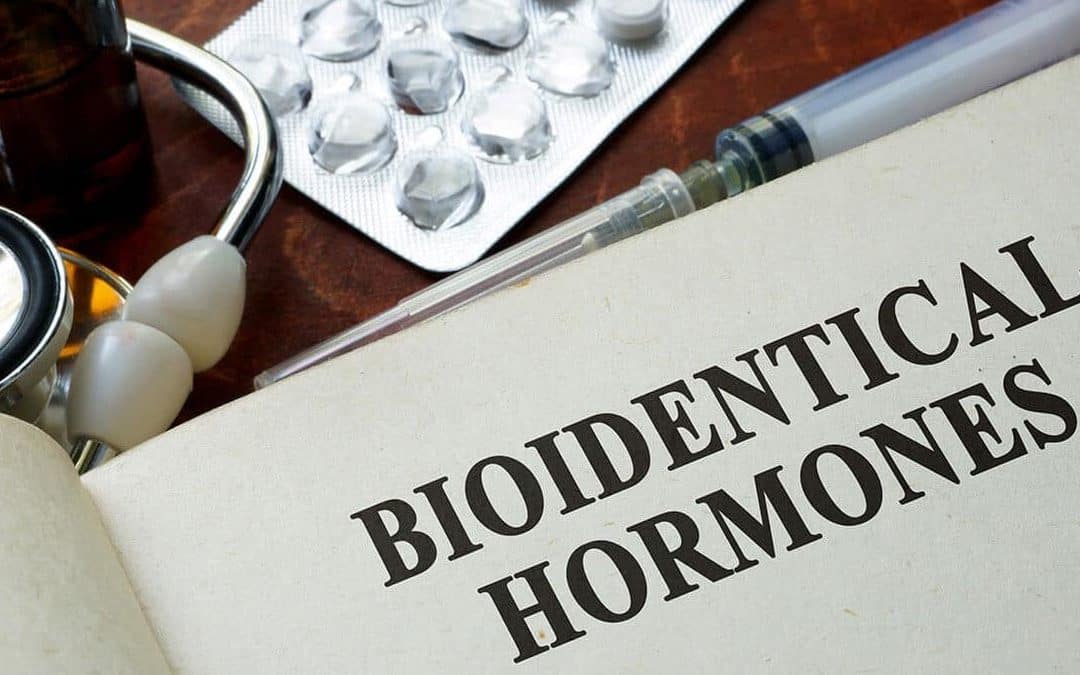Busting Hormone Myths: Debunking Misconceptions about Bioidentical Hormones
Hormones are the unsung heroes of our bodies, silently orchestrating many physiological processes that keep us ticking. From regulating metabolism and mood to ensuring our reproductive systems run smoothly, hormones are the puppet masters behind the scenes. However, when these delicate chemical messengers falter or fall out of balance, our lives can turn turbulent.
Enter bioidentical hormones, a topic that has stirred up quite a buzz in the realm of hormone replacement therapy. Unfortunately, with buzz comes a fair share of myths and misconceptions. In this discussion, we’re about to dissect and debunk these myths about bioidentical hormones and get to the bottom of what they truly represent.
Myth 1: Bioidentical Hormones Are Not Natural
Let’s start with a misconception that plagues bioidentical hormones more than any other: the belief that they are not natural. Skeptics argue that because these hormones are synthesized in a lab, they can’t be considered natural.
Bioidentical hormones may be synthesized in a lab, but here’s the crucial point: their molecular structure is identical to hormones naturally produced by our bodies. They’re like the body’s secret recipe recreated in a lab environment. These hormones are typically derived from soy or yam plants, making them inherently natural in origin.
Myth 2: All Hormones Are Created Equal
Let’s address another misconception that lumps all hormones into one category, assuming they have the same effects and risks. This notion couldn’t be further from the truth. The molecular structure of hormones plays a pivotal role in their function and how they interact with our bodies.
As the name suggests, bioidentical hormones are biologically identical to our natural hormones. This similarity results in a closer fit with our hormone receptors and often translates to fewer side effects. On the other hand, synthetic hormones may have a different molecular structure, leading to a higher risk of side effects and complications.
Myth 3: Bioidentical Hormones Are Only for Women
Another common misconception about bioidentical hormones is that they are exclusively tailored for women. This couldn’t be farther from reality. While women may indeed be the primary beneficiaries of hormone replacement therapy, especially during menopause, men are not excluded from the equation.
Men can experience hormonal imbalances, often related to declining testosterone levels, a condition commonly referred to as andropause or “male menopause.” Bioidentical hormones can play a crucial role in addressing these imbalances, helping men regain their vitality and well-being.
Myth 4: All Hormone Replacement Therapies Are Risky
Hormone replacement therapy, regardless of whether it involves bioidentical or synthetic hormones, is often viewed with a degree of apprehension due to perceived risks. It’s essential to acknowledge that any medical intervention carries potential risks, but these should be weighed against the benefits.
Bioidentical hormones typically have a more favorable risk profile compared to synthetic counterparts. Their structural similarity to the body’s own hormones generally leads to better tolerance and a reduced risk of adverse effects. However, it’s crucial to consult with a healthcare provider to discuss individualized risks and benefits.
Myth 5: Hormone Replacement Therapy Is Only for Menopause
One of the most persistent myths is that hormone replacement therapy is solely for women experiencing menopause. While it is undoubtedly a pivotal application, hormone therapy’s scope extends beyond this stage of life. Men and women alike can grapple with hormonal imbalances at various life stages, and hormone therapy can be a viable solution.
For men, as mentioned earlier, andropause can lead to imbalances in testosterone levels, resulting in symptoms like fatigue, reduced libido, and mood changes. In such cases, hormone therapy can provide much-needed relief and rejuvenation.
Myth 6: Hormone Therapy Benefits Are One-Size-Fits-All
It’s tempting to assume that the benefits of hormone therapy are uniform and apply equally to everyone. However, the reality is far more nuanced. Hormone therapy benefits are not one-size-fits-all; they are contingent upon individual factors such as hormonal needs, baseline hormone levels, and specific symptoms.
Personalization is key to optimizing hormone therapy benefits. Tailoring treatment plans to meet each individual’s unique requirements ensures the best chance of success. What works for one person may not be suitable for another, highlighting the importance of individualized care.
Myth 7: Hormone Therapy Is a Quick Fix
In our fast-paced world, we often seek quick fixes for our problems. Some people mistakenly believe that hormone therapy falls into this category. They assume that a simple hormone replacement can swiftly alleviate all their symptoms and restore them to peak health.
In reality, hormone therapy is not a quick fix. Achieving hormonal balance is a process that requires ongoing monitoring and adjustments. The goal is to fine-tune hormone levels to an optimal range, which can take time. It’s a journey that demands patience and collaboration between the individual and their healthcare provider.
Myth 8: Hormone Replacement Therapy Is Only for Severe Cases
This myth suggests that hormone replacement therapy is reserved exclusively for individuals with severe hormone-related conditions. However, hormone therapy can be valuable for a wide range of scenarios, from mild to moderate to severe.
Even if your symptoms are not debilitating, they can significantly impact your quality of life. Addressing hormone imbalances earlier may prevent symptoms from worsening and enhance overall well-being. Hormone therapy is not solely for the most extreme cases; it’s a versatile tool that can benefit many.
Myth 9: Bioidentical Hormones Are Not Regulated
A persistent myth circulating is the belief that bioidentical hormones are not subject to regulation. This notion often leads to concerns about the safety and quality of these hormones. However, it’s crucial to clarify this misconception.
Healthcare professionals can prescribe bioidentical hormone products that adhere to FDA regulations. These products undergo rigorous testing to ensure their safety and efficacy. While compounded bioidentical hormones may have more variability, FDA-approved options offer a reliable and regulated choice.
Myth 10: Natural Hormones Don’t Work as Well as Synthetic Ones
The final myth we’ll tackle is the assumption that natural hormones, like bioidentical hormones, are less effective than synthetic counterparts. This oversimplification fails to consider the complexities of hormone therapy.
The effectiveness of hormone therapy depends on numerous factors, including the individual’s specific needs and responses. For many individuals, bioidentical hormones can effectively address hormonal imbalances while offering a more natural approach. Synthetic hormones may work well for some but can pose a higher risk of side effects.
It’s important to separate fact from fiction when it comes to hormone replacement therapy. Dispelling these common myths is essential for making informed decisions about your health. Bioidentical hormones, with their molecular similarity to natural hormones, offer a promising avenue for restoring hormonal balance. However, consulting with a knowledgeable healthcare provider is crucial to navigating the complexities of hormone therapy effectively. In doing so, you can debunk the myths and embrace the benefits of hormone therapy tailored to your unique needs.
Basic FAQs on Misconceptions about Bioidentical Hormones
What are bioidentical hormones? How do they differ from synthetic hormones?
Bioidentical hormones have the same molecular structure as hormones produced by the human body, while synthetic hormones have a different structure. This structural similarity is key to their function.
Are bioidentical hormones only for women going through menopause?
No, bioidentical hormones can benefit both men and women experiencing hormonal imbalances at various life stages, not just during menopause.
Is it true that bioidentical hormones are more natural than synthetic ones?
Yes, bioidentical hormones are derived from natural sources, making them a more natural option when compared to synthetic hormones.
Are all hormone replacement therapies risky, or do bioidentical hormones have a better safety profile?
While all medical interventions carry some risk, bioidentical hormones often have a more favorable risk profile compared to synthetic hormones due to their structural similarity.
Is hormone replacement therapy a quick fix for hormonal imbalances?
No, hormone therapy is not a quick fix; it requires ongoing monitoring and adjustments to achieve optimal hormone levels.
Are hormone therapy benefits the same for everyone, or do they vary based on individual factors?
Hormone therapy benefits are not one-size-fits-all; they depend on individual factors such as hormonal needs, baseline levels, and specific symptoms.
Can hormone replacement therapy be beneficial for mild to moderate hormonal imbalances, or is it only for severe cases?
Hormone replacement therapy can benefit individuals with a wide range of imbalances, from mild to severe, as it can enhance overall well-being.
Are bioidentical hormones regulated, and can I trust their safety and quality?
Healthcare professionals can prescribe FDA-regulated bioidentical hormone products, ensuring safety and efficacy. Compounded bioidentical hormones may have more variability.

